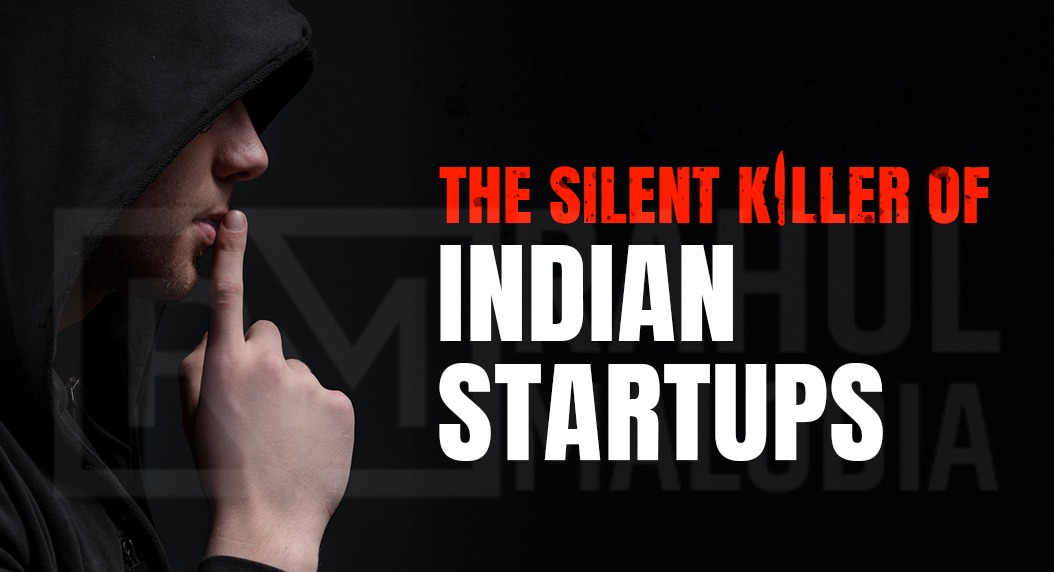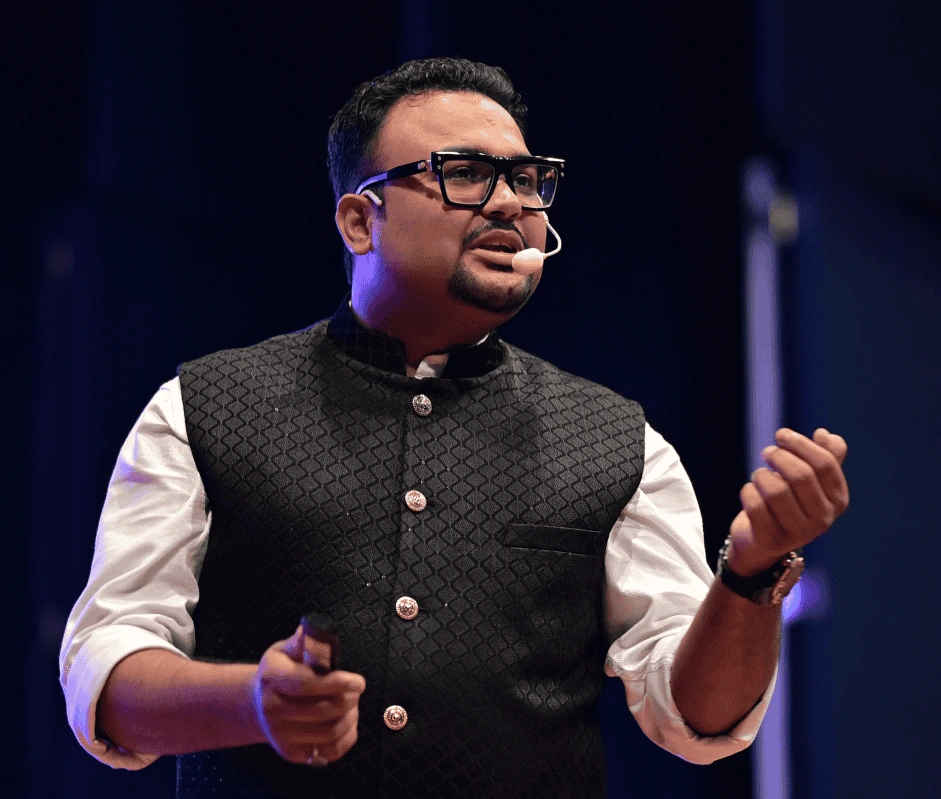
The Silent Killer of Indian Startups: Why Most Businesses Fail Before 3 Years
In the beginning, everything feels magical. You have an idea. You believe in it. You register your business. You get your first customer. You feel unstoppable. The first year is all about chasing big dreams and putting in the hustle to make them real.
The second year brings more responsibility. But then, somewhere between the second and third year, something starts to crack, and most Indian startups don’t even see it coming.
They don’t explode overnight. They simply fade. Quietly. Silently. And by the end of year three, what once looked like the next big thing is just another name added to the long list of Indian businesses that didn’t survive.
And that’s where the mystery begins. Why do so many Indian startups die before they even complete three years?
It's Not Just About Money — It's About Momentum
Everyone thinks businesses fail because of money. But let’s be honest, many startups that shut down still had money left in the bank. Some even had a decent product, a working team, and a few loyal customers.
So if it’s not money, what is it?
The truth is, most Indian startups don’t run out of money. They run out of momentum. That inner drive. That clear direction. That hunger to grow. What begins with energy slowly turns into confusion. And confusion becomes chaos.
One day, you're solving real problems. The next day, you're chasing trends that don’t even matter to your customer. Without noticing, you're stuck. You're busy but not moving forward.
And that is the silent killer, losing clarity and momentum while pretending you're still on track.
Year Three Is Where the Real Test Begins
Ask any experienced entrepreneur, and they’ll tell you the same thing, the third year is a battlefield. That first year feels like a rollercoaster. Every moment feels new, exciting, and packed with potential.
You make mistakes, but people forgive you. In the second year, you try to scale. You start hiring. You set bigger targets.
But the third year? That’s when the pressure gets real. Customers expect consistency. Employees expect stability. And you expect results. When they don’t show up, that little voice of self-doubt starts creeping in, making you question everything.
You start questioning everything from your business model to your self-worth. You're stuck between pushing forward or walking away, unsure which path will lead to real growth. And unfortunately, most give up not because the business failed, but because they lost faith in themselves.
This silent burnout, this emotional exhaustion, is what nobody prepares you for.
Founders Don’t Talk About It — But They Should
In India, failure still feels like a dirty word. You can see it on people’s faces when they ask, “How’s your startup going?” Saying “We’re struggling” shuts the door on solutions before they even begin. Everyone wants to hear good news. People rarely talk about the slow months, the unpaid bills, or the silent nights when you broke down alone.
So most founders put on a smile. They keep saying “All good, bro,” while inside, everything feels like it’s falling apart.
This pressure to look successful even when you're not, that's what kills Indian entrepreneurs from the inside.
You start hiding your struggles. You stop asking for help. You push through stress silently. By the time you feel overwhelmed in business, chances are it’s already taken over.
The Middle-Class Mindset That Makes It Harder
Let’s face it. A huge number of Indian entrepreneurs come from middle-class backgrounds. They start businesses not just to earn, but to change their lives and their family’s future. It’s not just a business. It’s a mission. A chance to prove something.
That mindset brings motivation, yes. But it also brings pressure. Because when things don’t go as planned, you don’t just lose money, you feel like you’ve disappointed everyone who believed in you.
And that guilt, that fear of failure, it builds slowly. Like a weight you carry every day. It doesn’t show in your pitch decks. But it shows in your energy. In your decisions. In how your team sees and believes in you.
This emotional pressure, if not handled well, doesn’t just slow down your business it destroys it.
The Operational Chaos No One Warns You About
In the third year, you realise something strange. You’re busier than ever, but progress feels slower. Every day is full of calls, meetings, and fires to put out, but nothing seems to move the needle.
That’s because most founders never learn the systems and processes that help a business grow smoothly. They try to run a bigger company with the same habits they had in year one. But it doesn’t work.
You start dropping the ball. Your team gets confused. Deadlines get missed. And slowly, frustration builds.
What often causes Indian startups to fail goes beyond just tough market conditions. It’s the internal mismanagement. The lack of structure. The absence of clarity. Struggling to shift from a Vyapari mindset to thinking like a CEO is one of the biggest reasons many Indian entrepreneurs face business failure.
This Is Where Rahul Malodia Enters the Picture
If you’re reading this and feeling a little nervous, you should. Because the third year can make or break your entire journey.
Here’s the best part: you don’t have to face these challenges without a clear plan.
That’s exactly why Rahul Malodia created the V2C Program: Vyapari to CEO. It’s not just a course. It’s a shift in how you run your business. It teaches you the systems, the mindset, and the strategies that help you build a real company, not just a running shop.
Thousands of Indian entrepreneurs have used his teachings to get out of survival mode and step into real leadership. And the results speak for themselves: stronger teams, better profits, more clarity, and most importantly, peace of mind.
Because the goal isn’t just to survive the third year. The aim is to confidently expand your business while staying in full control.
Customers Change — But Most Founders Don’t
Another major reason startups die is that founders refuse to evolve. The Indian market changes fast. What worked in year one won’t work in year three. Your customers expect better service, better branding, and faster support.
But if you're stuck doing things the old way, running every task yourself, making every decision alone, your business won’t be able to keep up. You’ll blame competition. You’ll blame the economy. But deep down, the real reason will be that you didn’t grow with your business.
This is why mindset training is not optional. It’s necessary. Because your business can only grow as fast as you grow.
What to Do If You’re Already Struggling
If you’ve been in business for more than a year, and you're feeling stuck, tired, or unsure, you’re not alone. And you're not broken. You’re just at a turning point.
Never fall into the trap of repeating the same actions and hoping for new business growth; real success demands fresh strategies and bold changes. This is the time to step back and rebuild your foundation.
Start with clarity. What is your real vision? What is your ideal customer? Are you working on the right things every day or just staying busy to avoid the hard questions?
Then, start learning. Not just random tips from YouTube but real frameworks from people who’ve built successful Indian businesses. People like Rahul Malodia, who understand not just business, but the Indian mindset.
And finally, surround yourself with people who are walking the same path. Being part of a strong community of entrepreneurs can be the difference between giving up and pushing through.
The Truth Most Will Never Say Out Loud
Here’s something most people won’t tell you: it’s okay to feel lost. It’s okay to have doubts. It’s okay to be tired. What’s not okay is pretending everything is fine while your business dies silently.
Success in business isn’t about acting strong. It’s about being honest with yourself and your journey.
And when you do that, you don’t just survive year three. You build the kind of business that lasts beyond ten.
Final Thoughts: Will You Let It Die Silently?
The biggest danger to your startup isn’t competition. It’s not the economy. It’s not funding.
It’s silent.
It’s suffering silently. Confusion silently. Quitting silently.
Don’t let your dream become another statistic. Don’t let your journey end just because no one showed you the way.
Learn the skills. Ask for help. Change your habits. And if you’re truly serious about building a business that grows with you, look into Rahul Malodia’s V2C Program. It could be the best decision you make before year three hits.
Your business doesn’t have to die. Not silently. Not early. Not anymore.
- Entrepreneurship
- Market Analysis
- Investment Ideas






